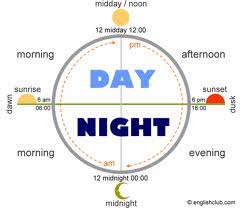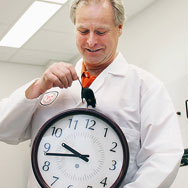The impact of the time change on mental and physical health
On the morning of March 10, most people in the United States will turn their clocks ahead by one hour in observance of daylight saving time.
Daylight saving time changes our circadian rhythm, which can disrupt our biological clocks and impact our health, according to Rutgers experts. Understanding how the circadian rhythm works and planning your sleep schedule can make the transition easier.
Helmut Zarbl, director of the Rutgers Environmental and Occupational Health Sciences Institute and chair of the Environmental and Occupational Health Department at the Rutgers School of Public Health, who is an expert in circadian rhythm and its influence on sleep-wake cycles, and Andrea Spaeth, director of the Rutgers Sleep Lab, discuss how you can best navigate the time change.
How does daylight saving time affect the body’s circadian rhythm?
Zarbl: Circadian rhythm regulates many important biological processes, such as hormone production and sleep patterns, and is largely controlled by external cues in the environment – mainly light. Changing sleep-wake cycles by an hour has an effect on our circadian clock. Since light is normally a key regulator of our biological clock, the change will shift the phase of our rhythm away from that of the central pacemaker.
As with any phase change, this will cause disturbances in sleep, metabolism, mood, bodily functions and productivity.
See all coverage:
Daily Mail (UK)
Copyright © 2021, Rutgers, The State University of New Jersey





